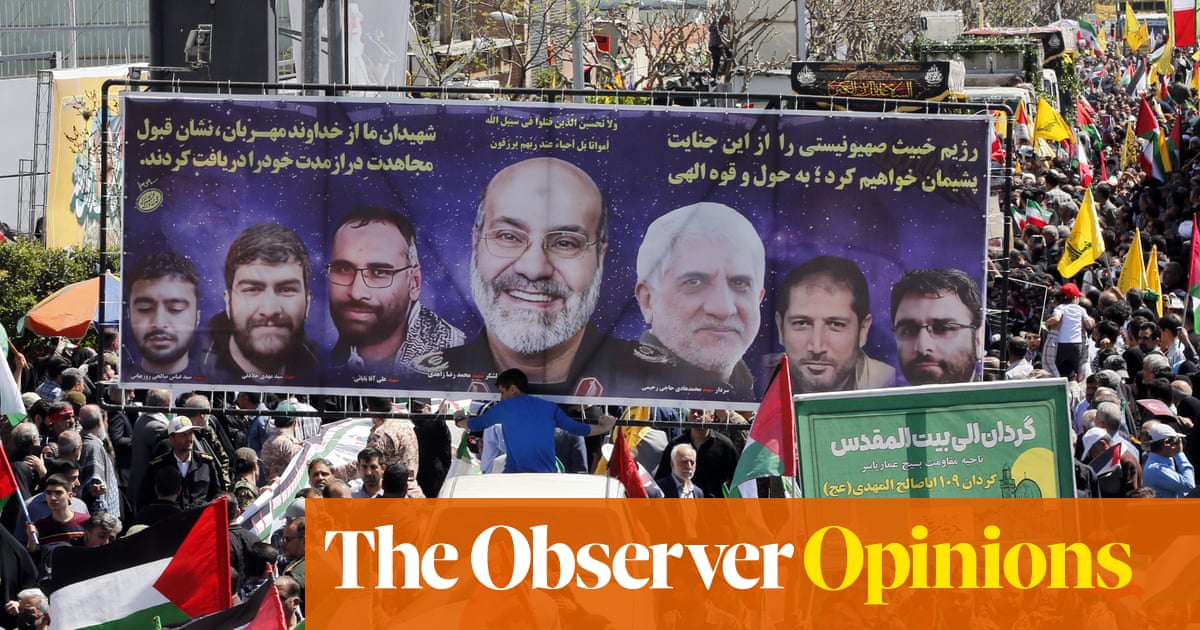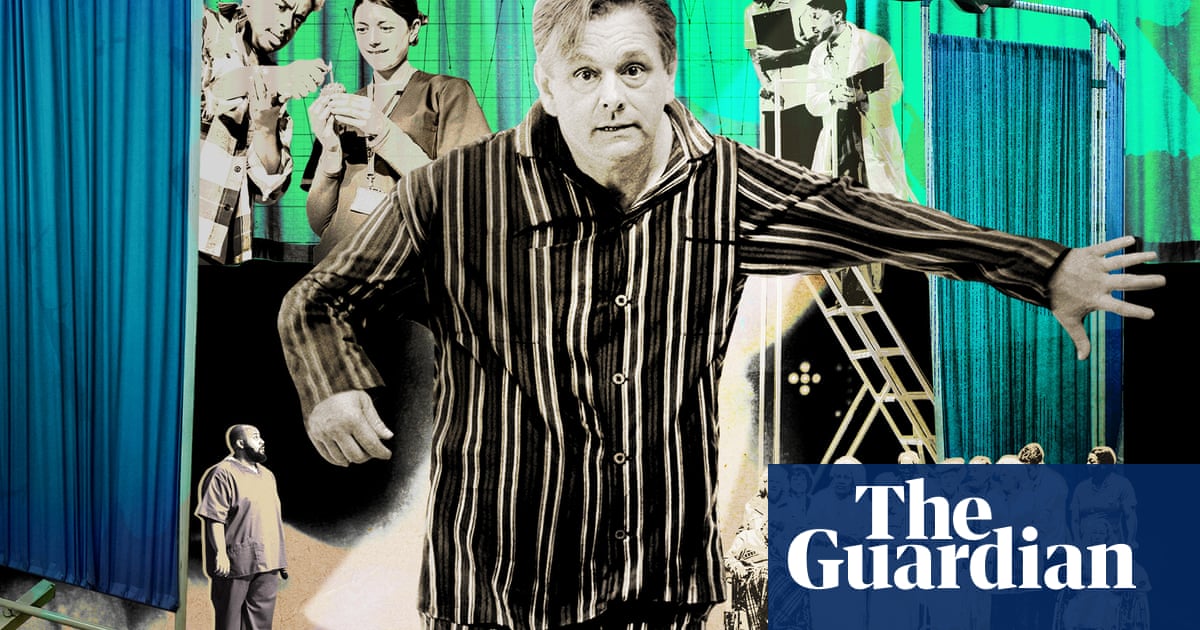
Interpreters in the European parliament usually sound so monotonous and mechanical that even well-rested listeners have trouble staying awake. But when the Ukrainian president, Volodymyr Zelenskiy, addressed a parliamentary session via video link on Tuesday, something extraordinary happened: the person relaying his words into English was so moved that he audibly fought to hold back his tears. “We’re fighting … just for our land … and for our freedom,” he said, then sniffed, his voice almost breaking as Zelenskiy, wearing a khaki T-shirt in what looked like a bunker, declared: “Despite the fact … that all our cities of our country are now blocked … nobody is going to enter and intervene with the freedom and our country.”
This is just one example among many, of how Vladimir Putin’s brutal war on Ukraine is shaking Europeans to the core. Having long believed that war was impossible on the continent, they are shocked – and embarrassed – that Ukrainians must not only defend their country against Russian aggression, but must also defend democracy, freedom and the right of sovereign states to determine their destiny – the very principles that underpin the European Union.
This war reinforces, with a jolt, the very raison d’etre of the EU as a peace project. After 24 February, no one will again be able to say that the EU’s founding credo, “Never again”, is outdated, and that the EU needs a new narrative to help younger generations – who have no memory of war – relate to European integration.
This is why the 27 member states, notoriously divided and slow when it comes to decision-making in Brussels, are showing such remarkable resolve today – especially over foreign policy and defence, which they traditionally prefer to keep national. In the past week, they have cut off Russian banks from the Swift payment system, financed the procurement of weapons to send to Ukraine (ironically from a fund called the European Peace Facility), blocked the Russian propaganda channels RT and Sputnik, and closed European skies for aircraft to and from Russia. Parliament even applauded the idea of Ukrainian membership of the EU, although most member states remain sceptical, because this process takes years.
Fuelled by emotion, the European train is rolling so fast that some are cautioning restraint in the face of Putin’s threat of nuclear escalation – emphasising that the US and European countries will not directly fight in Ukraine.
Yet the need for a strong territorial defence now tops the agenda – not just in Germany, which just doubled its defence budget for 2022, but even in militarily neutral Finland and Sweden, which are sending weapons to Ukraine. Neither of these Nordic EU members is in Nato, although both are closely collaborating with it. Public support for Nato membership is markedly growing. In Austria, where anti-Americanism is rife, similar discussions are taking place. A former ambassador to Moscow told public radio that Austrians are suddenly discovering that “Nato is our security”, adding, Das sind neue Zeiten (“This is a new era”).
Putin’s war is now dominating EU debates on a range of other policies. After 15 years of talking, Brussels suddenly agreed to connect Ukraine and Moldova (feared to be next on Putin’s hitlist) to the European electricity grid. EU agriculture ministers have discussed extra supplies of wheat, food and fertiliser to countries that depend on shipments from Ukraine. Even eurozone monetary policies will change. No country will be punished for budget deficits and, with the increasing weaponisation of the world’s reserve currencies, eurozone membership will become more than a form of protection against exchange rate upheavals or a way to foster intra-EU trade – it will be a geopolitical insurance policy. Under these circumstances, Dutch-German resistance to common borrowing (Eurobonds) could melt away.
Poland and Hungary, until now unwilling to welcome refugees, have suddenly opened border crossings to – admittedly –white, Christian ones. Polish workers in Belgium jump in their cars and drive east to help out as Ukrainians flee the fighting. A week of Russian bombardment has driven more than a million people from Ukraine into neighbouring countries of the EU. The UN Refugee Agency, UNHCR, expects another 4 to 5 million to come In 2015, the arrival of a million Syrian refugees led to political turmoil across Europe; now there is no panic at all. Rather, according to Hugo Brady of the International Centre for Migration Policy Development in Vienna: “Eastern European countries are having their Wir schaffen das moment”.
The German-French writer and political scientist Alfred Grosser wrote in Wie anders sind die Deutschen (How Different Are the Germans?) that Joseph Stalin deserved the first Charlemagne prize for services to European integration, for without the shared, transatlantic fear of communist totalitarianism, “there would never have been a [European] community”.
Fear of Putin now has a similar function. It brings the US and Europe closer together, mutes internal discord in the EU for now, and makes clear that Nato is not, as the French president, Emmanuel Macron, once suggested, “brain-dead” but Europe’s ultimate guarantor of peace.
Putin’s invasion “appears to be pushing the EU to centralise more rapidly than before in its history”, Kathleen McNamara and Daniel Kelemen, professors of Georgetown and Rutgers university respectively, argued in the Washington Post this week. For the moment, this is very much the dynamic. Undoubtedly, divisions between EU member states will reappear soon. They always do. And, as always, the EU will deal with them – this is why it was set up in the first place.
But one thing is sure: because of Putin’s war, Europeans have discovered that “Never again” is here again.
Caroline de Gruyter is a Europe correspondent and columnist for the Dutch newspaper NRC Handelsblad, and Foreign Policy












